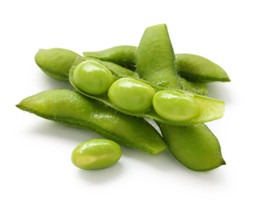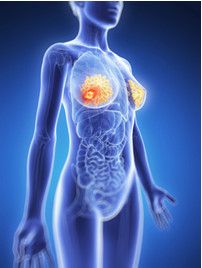 The Soy Controversy
The Soy Controversy
Author: Dr. Stephen Chaney
Soy and breast cancer: the wars are heating up again. You may have seen the recent headlines saying: “Soy protein found to speed the growth of breast cancer!” “Eating soy may turn on genes linked to [breast] cancer growth!” “Women with breast cancer should avoid high soy diets!” It all sounds pretty scary.
If this is true, it is big news. In recent years the consensus in the scientific community has been that soy is not harmful for women with breast cancer, and that it might even be beneficial. However, some skeptics have never accepted that consensus view. Those skeptics are once again claiming that soy protein may be risky for women with breast cancer.
Let’s look at the study behind the recent headlines and see if it is compelling enough to challenge the prevailing consensus on the safety of soy for women with breast cancer.
Does Soy Protein Turn On Breast Cancer Growth Genes?
This study (Shike et al, Journal of the National Cancer Institute, Sep 4 2014, doi: 10.1093/jnci/dju 189) looked at 140 women (average age 56) with invasive breast cancer. They were randomly divided into two groups of 70 and either given soy protein or a placebo between the initial biopsy and the time that surgery was performed to remove the tumor (a period of 7 to 30 days). A second biopsy was obtained at the time of surgery.
The activity of a number of genes associated with breast cancer survival was measured in the two biopsy samples. The observation that made the headlines was:
- For some of the women in the study the activity of several genes associated with breast cancer growth and survival was increased in the group consuming soy protein compared to the placebo group. The authors concluded: “These data raise concern that soy may exert a stimulatory effect on breast cancer in a subset of women.”
What Are The Limitations Of The Study?
The authors acknowledged the many limitations of the study, but the press has largely ignored them.
- The increased activity of the cancer growth genes was only seen in 20% of the women studied. For 80% of the women studied soy protein consumption had no effect on the activity of genes associated with breast cancer growth and survival.
- This effect was only seen for some of the genes associated with breast cancer growth and survival. Other breast cancer growth genes were not affected in any of the women enrolled in the study. The authors conceded that it was unknown whether these limited genetic changes would have any effect on tumor growth and survival.
- There was no effect of soy consumption on actual tumor growth in any of the women studied.
- This was a very short term study so it is not known whether these changes in gene expression would have continued if soy supplementation were continued for a longer period of time. There are numerous examples in the literature of initial changes in gene expression in response to a radical change in diet that disappear once the body becomes accustomed to the new diet.
- There is absolutely no way of knowing if the observed changes in gene expression would actually affect clinical outcomes such as survival, response to chemotherapy or tumor recurrence.
Should Women With Breast Cancer Avoid Soy?
Even with all of the limitations listed above, if this were the only study to test the soy-breast cancer hypothesis, I and most other experts would probably be warning women with breast cancer to be very cautious about consuming soy.
However, as I discussed in a previous “Health Tips From the Professor” (https://www.chaneyhealth.com/healthtips/soy-and-breast-cancer-recurrence/) at least five clinical studies have been published on the effects of soy consumption on the recurrence of breast cancer in women who are breast cancer survivors, both in Chinese and American populations. The studies have shown either no effect of soy on breast cancer recurrence or a protective effect. None of them have shown any detrimental effects of soy consumption by breast cancer survivors.
A meta-analysis of all 5 studies was published last year (Chi et al, Asian Pac J Cancer Prev., 14: 2407-2412, 2013). This study combined the data from 11,206 breast cancer survivors in the US and China. Those with the highest soy consumption had a 23% decrease in recurrence and a 15% decrease in mortality from breast cancer.
Another meta-analysis of 18 clinical studies found that soy slightly decreases the risk of developing breast cancer in the first place (J Natl Cancer Inst, 98: 459-471, 2006). To date there is absolutely no clinical evidence that soy increases the risk of breast cancer.
The Bottom Line
What does this mean for you if you are a woman with breast cancer, a breast cancer survivor or someone who is concerned about your risk of developing breast cancer?
- The study that has generated the recent headlines has so many limitations that I would not recommend any changes in soy consumption at present. It raises an interesting hypothesis that requires further study and validation. If this hypothesis holds up it may result in changes in dietary recommendations for a very small subset of women with invasive breast cancer.
- There are many reasons to include soy protein foods as part of a healthy diet. Soy foods are one of the highest quality vegetable protein sources and provide a great alternative to many of the high fat, high cholesterol animal proteins in the American diet.
- I personally feel that these studies are clear cut enough that women who are concerned about their breast cancer risk, women with breast cancer, and breast cancer survivors no longer need to fear soy protein as part of a healthy diet.
- The responsible websites agree with this assessment. For example, WebMD and the American Institute for Cancer Research (AICR) both say that breast cancer survivors need no longer worry about eating moderate amounts of soy foods.
- The irresponsible websites (I won’t name names, but you know who they are) are still warning breast cancer survivors to avoid soy completely. They are citing the latest study, with all of its limitations, as proof that they were right all along. As a scientist I really have a problem with people who are unwilling to change their opinions in the face of overwhelming scientific evidence to the contrary.
- Finally, I want to emphasize that the published studies merely show that soy does not increase the risk of breast cancer and is safe to use for breast cancer survivors. None of those studies suggest that soy is an effective treatment for breast cancer. The protective effects of soy are modest at best. If you have breast cancer, consult with your physician about the best treatment options for you.
These statements have not been evaluated by the Food and Drug Administration. This information is not intended to diagnose, treat, cure or prevent any disease.
